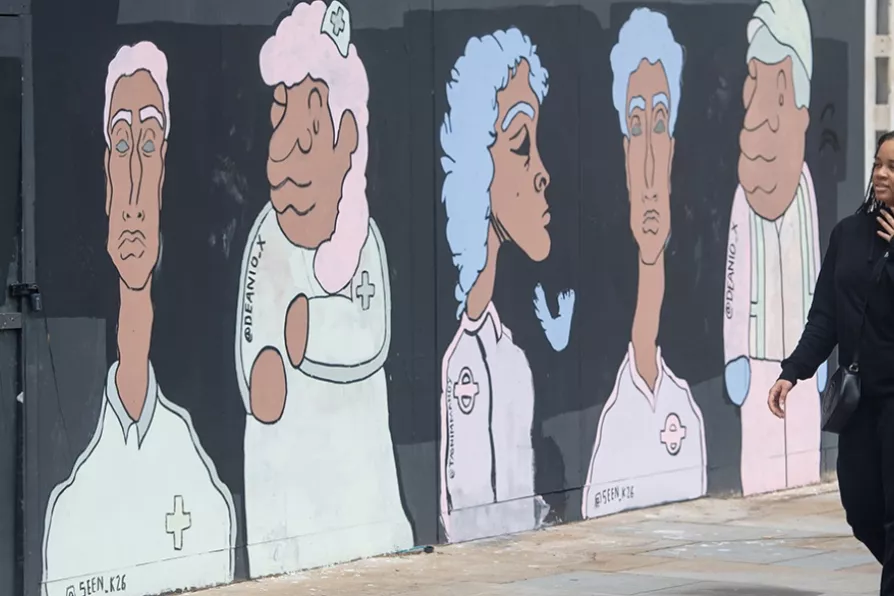BME workers twice as likely to be unemployed

 A woman passes a mural showing BAME medical, transport and construction workers, in Waterloo, London, in June 2020
A woman passes a mural showing BAME medical, transport and construction workers, in Waterloo, London, in June 2020
THE unemployment rate for black and ethnic minority (BME) workers was more than two times that of their white peers last year, with women particularly badly affected, the TUC warned today.
Its analysis of the latest Office for National Statistics data shows that 6.9 per cent of BME people were out of work in 2022, compared to 3.2 per cent of white workers.
The study, published to coincide with the start of the TUC’s three-day black workers’ conference in London, also reveals that a whopping 8.1 per cent of BME women were unemployed, as opposed to 2.8 per cent of their white counterparts.
Similar stories













